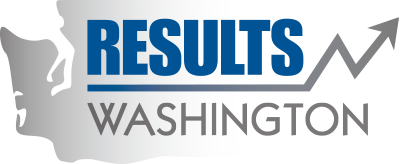Archived: Adults reporting fair or poor health
How a person feels about their health can impact their quality of life. It is also a predictor of future disability, hospitalization, or death. We want to give everyone a chance at a long, fulfilling, and productive life. By helping teens and adults have healthier lives, we can improve quality of life and ensure a healthier workforce.
In 2012, about 16% of adults reported that their health was fair or poor. With increasing age, a person's health usually declines. Therefore older adults were more likely than younger adults to report that their health was fair or poor. However, even when accounting for age, some groups were much more likely to report their health as fair or poor. Adults with less than $25,000 and those with a high school education or less were more likely to say their health was fair or poor as were adults who identified as Hispanic, American Indian/Alaska Native, or Black.
Adults who said their health was fair or poor were also more likely to smoke cigarettes and to be at an unhealthy weight. Adults with diabetes, asthma, or a disability were also more likely to report their health as fair or poor. State agencies are focusing on these risk factors to improve the health of teenagers and adults.
- Active living in communities. We partner with local public health departments to improve physical activity opportunities in communities across Washington. Approaches include creating safe walking and biking paths in neighborhoods, designing streets that encourage walking and biking, and starting programs like Safe Routes to School and walking school buses to help children walk to school.
- Chemical dependency treatment. The Department of Social and Health Services is working with chemical dependency treatment providers to keep adults in treatment who still need it. They are also designing more youth-friendly settings and environments to improve treatment for young adults.
- Chronic Disease Self Management Program. We coordinate these workshops in communities across Washington to help people with ongoing conditions ( such as diabetes, asthma, and arthritis) improve the quality of their lives.
- Community health worker training program. We train community health workers across Washington four times a year. Once trained, these workers are better able to connect people in their community to needed social and health services.
- Healthy food in communities. We partner with local public health departments to improve healthy eating in communities across Washington. Approaches include helping local corner stores stock healthier food and beverages and developing community gardens. The Department of Agriculture is matching farms and schools together to get Washington grown healthy foods into schools.
- Healthy nutrition guidelines for state agencies. In 2012, Washington state government employed over 94,000 full-time employees. We recently developed the Healthy Nutrition Guidelines to help state agencies increase healthier food and beverages options at work.
- Mental health services. The Department of Social and Health Services is giving more funding to Regional Support Networks to expand mental health and crisis services to meet the needs of adults newly enrolled in Medicaid. They are also developing better systems to help people recently discharged from inpatient settings.
- Substance abuse prevention. The Department of Social and Health Services is working with community coalitions to prevent alcohol and marijuana use by young people.
- Tobacco cessation . We fund the Washington Tobacco Quit line that helps adults quit smoking: 1-800-QUIT-NOW or 1-800-784-8669. We also protect people from secondhand smoke by educating communities on the importance of having rules that ban smoking and other tobacco use in public places like worksites, public housing, schools, colleges, and parks.
- Women, Infants, and Children (WIC) Nutrition Program. WIC is a nutrition program for pregnant women, new and breastfeeding moms, and children under 5. WIC provides monthly checks for healthy food, health screenings and referrals, nutrition education, and breastfeeding support. We are working on a new electronic benefits transfer (EBT) project that would replace the paper checks current issued to WIC clients.
- If you have an ongoing illness like diabetes or asthma, attend a Living Well With Chronic Conditions workshop. To find out when one is scheduled in your areas, visit this website .
- If you have questions or concerns about your mental health, or you need support, visit this website .
- If you smoke, try to stop. If you need help quitting, call the Washington State Quitline at 1-800-784-8669 or visit this website .
- Learn what it means to make better food choices by visiting this website .
- Find out if you're eligible for the WIC Nutrition program by calling the Family Health Hotline at 1-800-322-2588 or visiting this website .
- Be active at least 2.5 hours a week. To learn how to increase your physical activity, visit this website .
- Men, learn more about making positive changes to your health by visiting this website .
- Women, learn more about making positive changes for your health by visiting this website.
